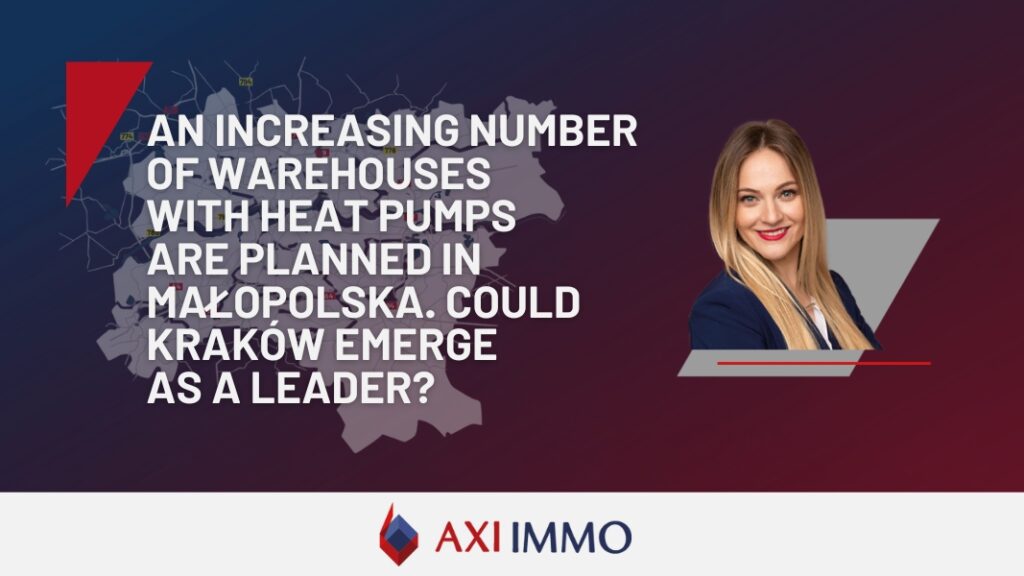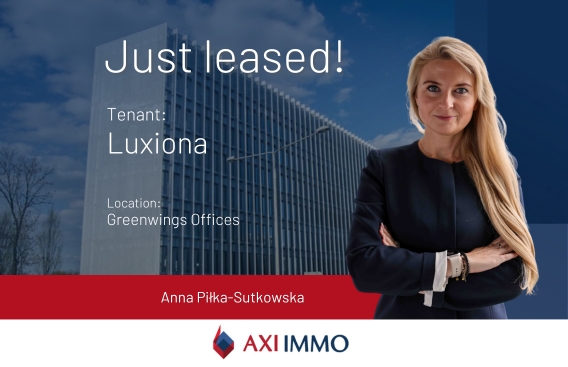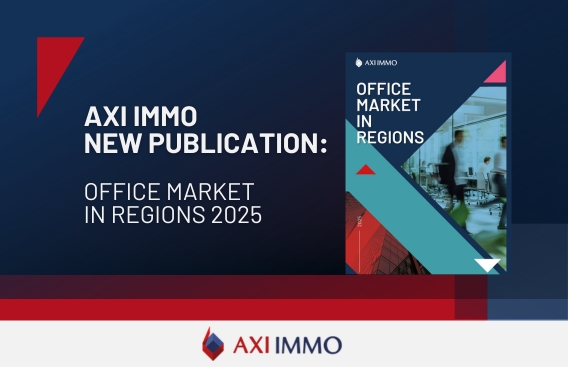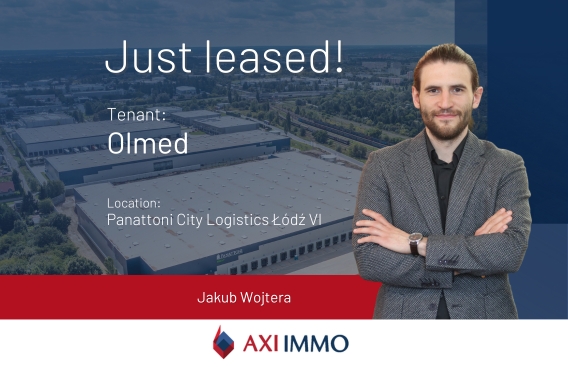An increasing number of warehouses with heat pumps are planned in Małopolska. Could Kraków emerge as a leader?
How Małopolska is entering the gas-free warehouse era.

- In Małopolska, developers of warehouse, logistics, and production spaces are increasingly choosing heat pumps and photovoltaics instead of gas boiler rooms in their warehouses.
- Warehouse facilities in the Małopolska region are undergoing an intensive transformation, becoming more environmentally friendly and economical.
- Over 40% of planned investments in Krakow may utilise heat pumps as the primary heating source.
Estimated reading time: 6 minutes
A quiet revolution is underway in Małopolska’s industrial landscape. Developers across the region are increasingly favouring heat pumps and photovoltaic systems over traditional gas boilers in warehouse construction. This shift marks a growing commitment to renewable energy solutions, with investors recognising the dual benefits of environmental responsibility and long-term cost efficiency.
How does Marta Nowik, Director of the Industrial and Logistics Department at AXI IMMO, assess this trend? We invite you to read her commentary on how Małopolska is entering the era of gas-free warehousing.
Modern warehouses in and around Krakow with green energy
The warehouse sector in Małopolska is undergoing a significant energy transition. Just a few years ago, facilities heated using ambient energy were a rarity. Today, however, they are emerging as a viable alternative to conventional gas boilers. Heat pumps, supported by photovoltaic systems and energy management technologies, are increasingly setting the standard in modern logistics parks.
Although the Małopolska region — with approximately 1.19 million square metres of modern warehouse stock — does not match the overall scale of Mazovia (7.19 million square metres) or Silesia (6.15 million square metres), developers operating in and around Kraków are increasingly integrating “no-gas-ready” solutions into their projects. In Poland, pioneers in this field include 7R, Panattoni, CTP, Lemon Tree, and MDC².
Heat pumps in industrial halls – Małopolska’s eco-friendly future solution
Nonetheless, technical constraints must be taken into account. Heat pumps for large-scale warehouses require substantial grid connection capacity, a well-designed heat distribution system, and robust building insulation. In Małopolska, some older parks may require infrastructure upgrades to accommodate such systems. Developers who plan these adaptations at the design stage can significantly reduce implementation costs.
According to current data from industrial developers, over 40% of the planned warehouse and production space to be constructed in the Kraków region could be delivered with heat pumps as the primary heating source. This figure may increase in the coming quarters or years, depending on tenant demand. For companies leasing space in modern logistics parks, this shift offers not only reduced heating costs but also access to more environmentally friendly solutions — a growing asset in customer and investor relations.
Heat pumps for large industrial buildings – when is it worth it?
It is worth considering how the buildings in which businesses operate are heated. Heat pumps, which until recently were regarded as a solution primarily for Build-to-Suit (BTS) projects, are now increasingly being planned as standard in new warehouse and production locations. This shift is driven not only by ESG policy requirements but also by economic rationale. With rising carbon emissions and gas prices, renewable energy can deliver tangible savings — up to 50% on heating costs. Naturally, actual savings depend on several factors, including insulation quality, heating system type, and installation efficiency. By choosing facilities equipped with heat pumps, tenants can substantially lower operating costs and reduce exposure to volatile fossil fuel prices.
Carbon dioxide emission costs and gas prices are on the rise, while energy from renewable sources is delivering tangible savings — in some cases, up to 50% on heating expenses. Naturally, the actual level of savings depends on several factors, including the quality of insulation, the type of heating system, and the efficiency of the installation itself.
By choosing facilities equipped with heat pumps, tenants can significantly reduce their operational costs and shield themselves from the volatility of fossil fuel prices.
In practice, it can be expected that over the next few years, the majority of new Class A warehouses in the Kraków metropolitan area will be offered in a “no-gas” configuration, with heat pumps and photovoltaic systems included as standard.
Małopolska on the path to a green revolution in the Polish warehouse market
All signs point to Małopolska having the potential to become a leader in the green transformation of the warehouse sector — particularly in percentage terms, given the market’s size and growth dynamics. However, final investment decisions often hinge on the preferences of future occupiers. Their active engagement in selecting sustainable solutions will play a crucial role in shaping the future direction of the market.
Autor

Marta Nowik, Director
Industrial and Logistics Department, AXI IMMO
About AXI IMMO
AXI IMMO offers comprehensive advisory services related to commercial real estate, including warehouse and office leasing and property management, real estate valuation, land acquisition, and sales. The firm also offers B2B and B2C supply chain management services. AXI IMMO’s greatest advantage is combining international business standards with deep local market knowledge.
AXI IMMO has received numerous awards, including Best Local Agency of the Year in 2012–2019 and 2021 in the CiJ Awards and Best Team in the Warehouse Sector in 2016–2017. In 2019 and 2023, the firm was the winner in the Local Agency category, and in 2024, it was named Advisor of the Year at the CEE Investment Awards. AXI IMMO was named Local Agent of the Year in 2023 and 2024 in the CEE region at the CEEQA awards. The firm’s most recent achievement is the title of Advisor of the Year in the Prime Property Prize 2024.
Recent articles
23 February 2026
Luxiona with its headquarters and showroom at Greenwings in Warsaw, Poland
With the support of AXI IMMO, Poland’s largest commercial real estate advisory firm, Luxiona selected its new Polish headquarters and showroom space.
17 February 2026
Poland Regional Office Markets 2025 Report, February 2026, AXI IMMO – Kraków, Wrocław, Gdańsk, Katowice, Łódź, Szczecin, Lublin
Office market in Poland's key regional hubs. Gain the latest data on office space trends and investment opportunities across Poland.
16 February 2026
AXI IMMO expands its Office Agency Team in Southern Poland
AXI IMMO strengthens its Office Agency team in southern Poland with experienced professionals and promotions, enhancing its presence in regional and Warsaw markets.
10 February 2026
OLMED secures 9,500 sq m. lease with expert guidance from AXI IMMO
Panattoni with a new tenant in Łódź – OLMED will occupy 9,500 sqm



